Dramatic twist on true story of brawling Jews vs. fascists in ’60s UK
‘Ridley Road’ is a fictionalised look at the real-life antisemites who threatened British Jewry, and the Jewish toughs who beat some sense into them, airing on ABC iView.
An almost forgotten chapter in the history of antisemitism in Britain is the subject of an extraordinary four-part TV series that debuted last year on the BBC.
Ridley Road, which is currently streaming on ABC iView, presents a fictionalised version of the real-life anti-Jewish demonstrations held by the far-right National Socialist Movement (NSM). Facing them were the young Jewish men and women of the equally real 62 Group, who, through some scrappy street fighting and intelligence work, defeated the fascists.
The series Ridley Road is based on a 2014 book of the same name by Jo Bloom, itself named for a longstanding street market in what was then a heavily Jewish area of East London. As the NSM and its leader Colin Jordan became bolder and more vocal, Ridley Road became the hub of the Jewish opposition to the band of latter-day Nazis.
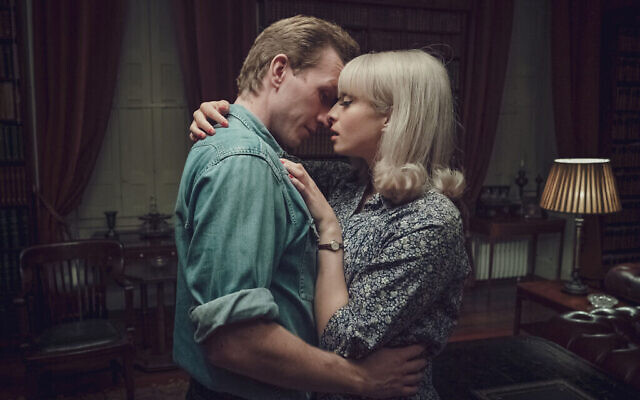
In July 1962, Jordan held a demonstration in central London’s Trafalgar Square that would go down in infamy, with rallying cries of “The Jews have taken control,” and “Perish Judah.” The newly formed 62 Group waded in to oppose the NSM and a near-riot ensued, resulting in multiple arrests. Jordan, at the time, was married to Françoise Dior, niece of fashion designer Christian Dior.
In the BBC’s retelling of the story — complete with the cream of British character actors — a young Jewish woman, Vivien Epstein, leaves her northern hometown of Manchester to find her boyfriend, Jack Morris, in London. She accidentally becomes caught up in the Trafalgar Square riots and to her horror sees none other than Jack, standing on top of one of the iconic stone lions, waving a fascist flag and shouting Nazi slogans.
When it becomes clear that Jack is actually a member of the 62 Group who has infiltrated Jordan’s network, Vivien resolves to assist in his dangerous subterfuge. And so, in the first episode of the series, Vivien, played by newcomer Agnes O’Casey, finds herself snapping out a “Sieg Heil” salute with Colin Jordan and his young son. (In real life, Jordan had no children.)
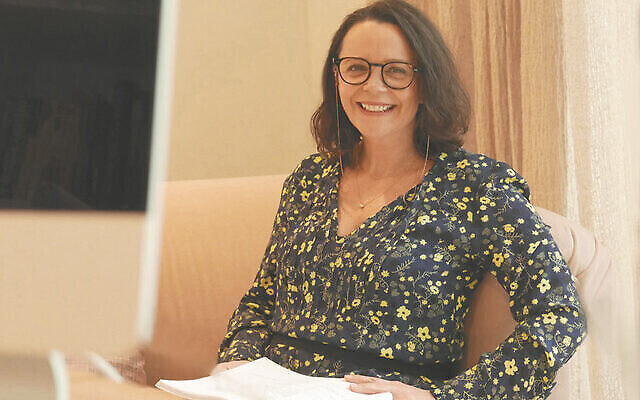
The show’s executive producer Nicola Shindler, and writer and co-producer Sarah Solemani, are both Jewish or of Jewish descent. For Shindler, dealing with the hate speech of the fascists and neo-Nazis in the script was “incredibly uncomfortable as a Jewish woman. I wasn’t aware of how prevalent these views were in the 1960s and I did find it really shocking.”
But Shindler — in words echoed by other members of what Solemani calls “a passion project” — said it was “incredibly timely” to be showing Ridley Road now.
“We are all aware of the increase in antisemitism and the need to fight back against it,” Shindler told The Times of Israel. “It’s particularly necessary to tell this story when so many governments are either not fighting racism or actively encouraging it.”
Tracy-Ann Oberman is a British Jewish character actress who has been at the forefront of the fight against antisemitism from both the far-left and far-right on social media. Oberman plays Nancy Malinovsky, wife of 62 Group leader Soly Malinovsky, and is the wise mentor to the young people who take part in the frightening infiltration into Jordan’s network.
“At a time when we are reappraising British history through the eyes of minorities [as far as] colonialism and slavery, Britain also needs to take a long look into its brushes, and obsession, with fascism,” Oberman said. “Ridley Road is a reminder that this resurgence of Jew-hate happened again in 1962, and we have forgotten that fascists held mass marches against Jews, set fire to synagogues and attacked Jewish people.
“What is so shocking is that at the time, neither the police nor the government were that bothered about it — the 62 Group grew out of a need for a community to protect itself when no one else would.
“And today, our community needs to know how vulnerable we were,” she said.
‘I’ve been fighting Nazis all my life’
One of the few remaining known members of the real-life 62 Group is Gerald Ronson, a British businessman and philanthropist who is the founding chairman of the Community Security Trust (CST), a charity that provides physical protection for the Jewish community in the UK as well as in-depth research on antisemitism.
The CST was officially formed in 1994 but had gone through a number of prior iterations since the disbanding of the 62 Group. Ronson was involved in all of them, convinced of the necessity of on-site security for synagogues, Jewish schools and communal buildings.
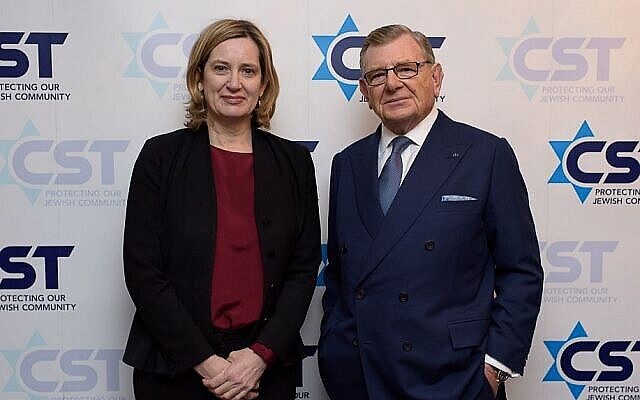
Today the CST has an annual operating budget of £8 million — with a further £14 million from the government so that it can provide security for the community. That, together with the Jewish community’s “fantastic relationship” with the police, is the main difference between 1962 and 2021, says Ronson.
“I have been committed to this cause — fighting Nazis — all my life,” Ronson said. “I became involved with the 62 Group because I had friends in it, and I believed at the time that the threat from fascists was deadly serious. But we were fighting Nazis, and sometimes the police, too.”
Even today, the 82-year-old Ronson is still reluctant to talk about the specifics of what he actually did with the 62 Group — although he is often spoken of as one of its main street fighters in London. He said that his late father Henry was “very, very tough. He was a heavyweight boxer for the Jewish Lads’ Brigade and he fought the fascists in the late ’30s on the streets against [Sir Oswald] Mosley.”
Ronson himself still boxes with a trainer on Sunday mornings.
“It was simple — we did what had to be done. These were Nazis beating up Jews,” Ronson said of his time with the 62 Group. “I felt we couldn’t tolerate this. We didn’t have knives or guns, but we did what was necessary to protect Jews. Bad people had to be taken off the streets.”
In all, Ronson said, the Jewish opposition to the National Socialist movement at most comprised between 200 and 250 people in London, with a further 100 or so in Scotland, Manchester, Liverpool, Bournemouth and Brighton.
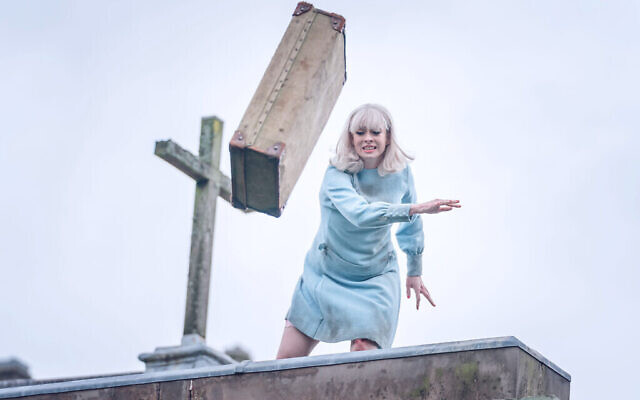
Balancing act
But Solemani acknowledged that depicting the 62 Group onscreen wasn’t so clear-cut.
“There was a lot of controversy at the time about the tactics of the 62 Group because they were not afraid to use violence. They would go to these meetings and marches, and punch, fight and cause destruction. A lot of them were ex-servicemen who had fought in the war” and who were enraged to see swastikas on the streets of Britain.
It was also a balancing act for actor Rory Kinnear, who had the difficult task of depicting Colin Jordan and voicing his views with conviction.
“What we see in contemporary far-right politics, to an extent, is this notion that there is this shadowy cabal of Jewish figures operating a global conspiracy to keep down the Christian white man,” said Kinnear. “And here [in Jordan] was somebody who had himself fought in the war, and gone to Cambridge, stirring up that level of hate so soon after the catastrophe of the Holocaust.”
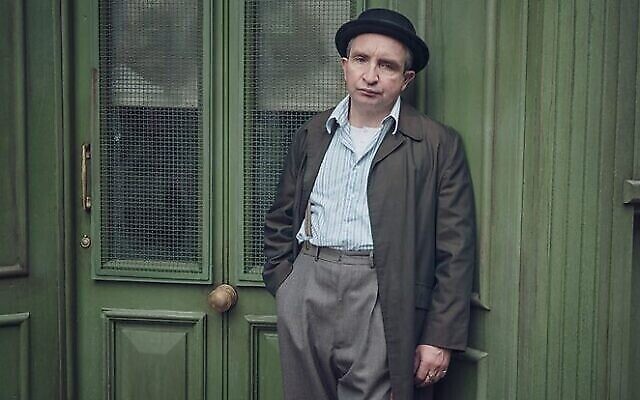
Eddie Marsan plays 62 Group leader Soly Malinovsky. Though not Jewish himself, Marsan actually grew up in the East End of London and has been a notable fighter against antisemitism on social media.
“Antisemitism gives the myth that it’s punching up to some mythical all-powerful Jewish elite… so quite often, young people are taken in by antisemitic tropes on social media,” Marsan said. “They don’t see it as racism, they see it as anticapitalist, and they feel more inclined to support it.”
And while 85-year-old Gerry Gable — another former member of the real-life 62 Group who helped the BBC production team by reading early scripts of the series — found some of the show’s dramatisation to be “irresponsible,” Marsan doesn’t think fans need much convincing to give the series a try.
“Fascists get kicked up the arse, and that’s always good to watch,” Marsan said.
Ridley Road is now streaming on ABC iView
Times of Israel

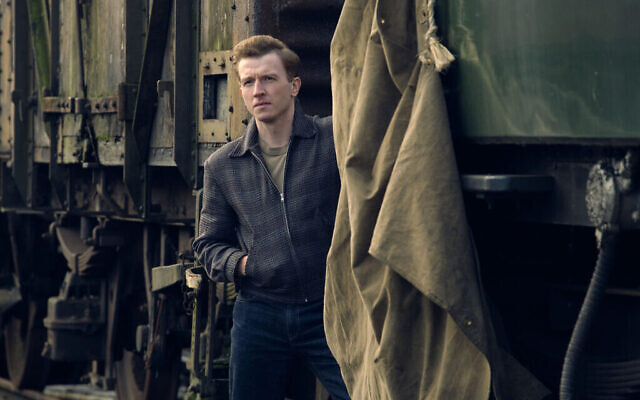
comments